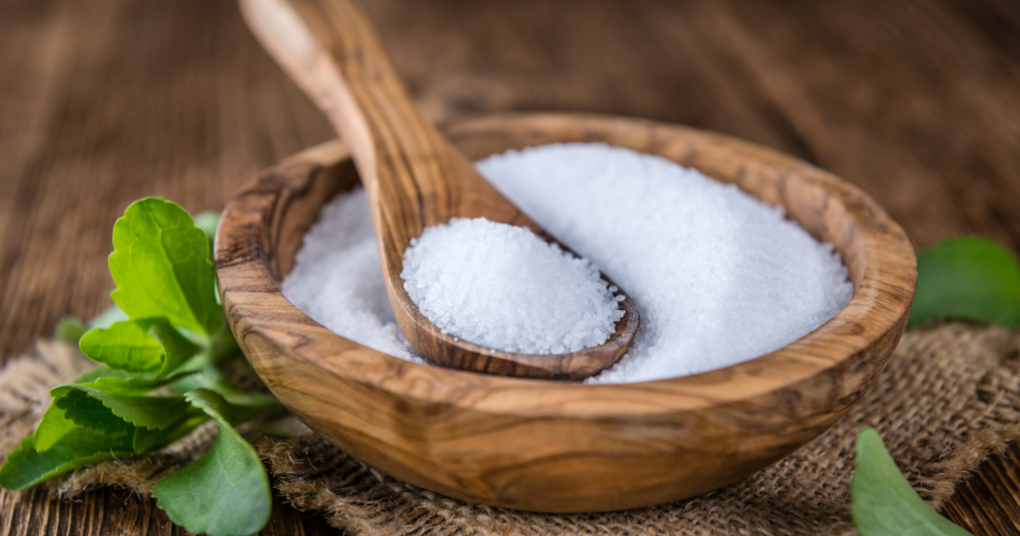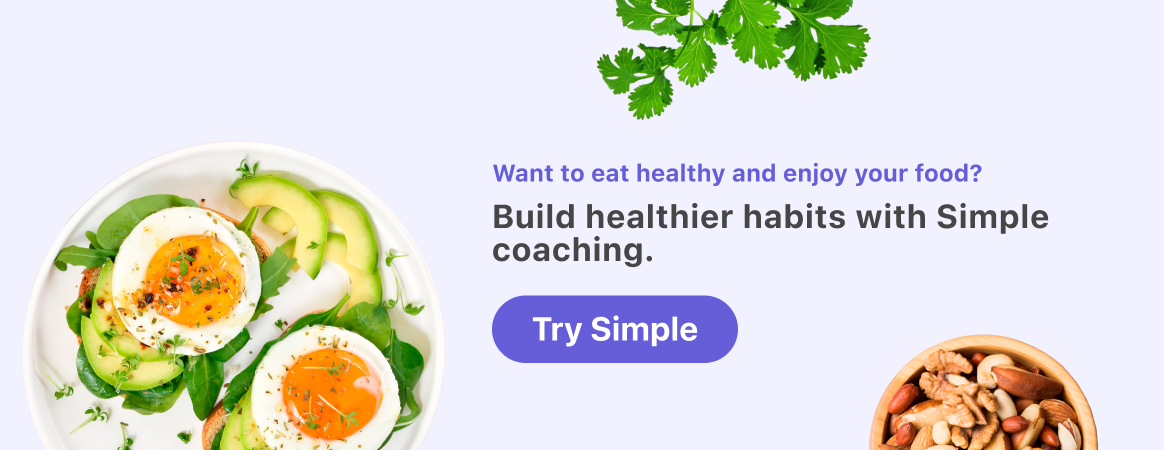Does stevia break a fast? — Explained by Simple

Picture it: You’re in the middle of your fasting window and poised over a cup of coffee or tea. You know you can’t add sugar if you don’t want to break your fast, but what about popular sugar substitutes and artificial sweeteners? Specifically, does stevia break a fast?

Let’s see what our experts say about stevia while fasting so you have the answers to questions like “Can I use stevia while fasting?” and “Will stevia break my fast?”
Will stevia break a fast?
So, does stevia break your fast?
If you’ve got a sweet tooth, you’re in luck: stevia, in moderation, is unlikely to break your fast. As it contains zero calories, it’s considered a “non-nutritive” sweetener,[1] so you can have stevia while fasting.
And as long as it’s pure stevia — with no other sugars or additives — the answer to “Does stevia leaf extract break a fast?” is also “unlikely.”
But can stevia break a fast?
More studies are needed to understand how stevia and other non-caloric sugar alternatives affect health and eating behaviors.[2] For example, some studies suggest stevia may increase appetite (not ideal during a fast … ), while others suggest it increases satiety.
If balancing flavor and fasting alongside your individual needs and preferences feels like too many spinning plates, we’re always here to lend extra hands. Take our Simple quiz so we can learn about you and your goals. Then, we can clear up what breaks a fast and provide personalized tips for navigating fasting windows.

What is stevia?
Great, you can have stevia while intermittent fasting! I can have stevia while fasting! We all can have stevia and intermittent fasting!
… But what actually is stevia?
Stevia is a natural sweetener derived from the stevia rebaudiana plant (a sunflower relative). Its sweetness comes from compounds called steviol glycosides, which taste up to 300 times sweeter than sucrose.[3]
Nutritional value
Stevia is OK for intermittent fasting because — in its pure, natural form — it doesn’t contain calories or nutrients.
Technically, one teaspoon (0.5 grams) contains about one gram of carbs, but that won’t affect your blood sugar levels or trigger the production of insulin that would snap your body out of its fasted state.
Health benefits and possible drawbacks of using stevia during intermittent fasting

Concerned about intermittent fasting and insulin resistance or intermittent fasting blood sugar levels? Stevia can be particularly helpful for people who are fasting to lose weight or manage blood glucose because, in comparison to pure sugar, it can:
- help with regulating blood sugars during fasting in people with type 2 diabetes [4]
- reduce appetite and energy intake during eating windows for some people [5]
- support reduction of waist circumference [6]
- lower blood pressure [7]
As far as drawbacks go, some people have sensitivities to the glycoside compounds and may experience stomach cramping or digestive issues. You may wish to try an alternative sweetener, like monk fruit.
Remember to chat with your healthcare provider if you are noticing frequent stomach cramping or any other side effects.
It’s also important to note that more research is needed to understand stevia’s potential benefits and side effects.[2]
Tips on using stevia during a fast
How can you use stevia while fasting? Here’s how to incorporate stevia into your fasting schedule without affecting your fasting benefits.
- Embrace moderation. Stick to a teaspoon or two (or a few drops if you’re using a more potent extract).
- Don’t substitute like for like. If you’re used to a tablespoon of sugar in your coffee, a tablespoon of stevia will taste way too sweet.
- Jazz up your water. If you’re sick of drinking plain water, add a bit of stevia and some slices of citrus fruit for a more flavorful but still fasting-safe infusion.
Plan your meals and drinks in advance. Having an idea of what to eat during intermittent fasting and what you can drink while fasting can help manage cravings and ensure you’re getting all the nutrients you need.

- Ashwell M. Stevia, Nature’s Zero-Calorie Sustainable Sweetener: A New Player in the Fight Against Obesity. Nutr Today. 2015 May;50(3):129–34.
- Lohner S, Toews I, Meerpohl JJ. Health outcomes of non-nutritive sweeteners: analysis of the research landscape. Nutr J. 2017 Sep 8;16(1):1–21.
- Peteliuk V, Rybchuk L, Bayliak M, Storey KB, Lushchak O. Natural sweetener Stevia rebaudiana: Functionalities, health benefits and potential risks. EXCLI J. 2021 Sep 22;20:1412–30.
- Ajami M, Seyfi M, Abdollah Pouri Hosseini F, Naseri P, Velayati A, Mahmoudnia F, et al. Effects of stevia on glycemic and lipid profile of type 2 diabetic patients: A randomized controlled trial. Avicenna J Phytomed. 2020 Mar-Apr;10(2):118–27.
- Stamataki NS, Scott C, Elliott R, McKie S, Bosscher D, McLaughlin JT. Stevia Beverage Consumption prior to Lunch Reduces Appetite and Total Energy Intake without Affecting Glycemia or Attentional Bias to Food Cues: A Double-Blind Randomized Controlled Trial in Healthy Adults. J Nutr. 2020 May 1;150(5):1126–34.
- Movahedian M, Golzan SA, Asbaghi O, Prabahar K, Hekmatdoost A. Assessing the impact of non-nutritive sweeteners on anthropometric indices and leptin levels in adults: A GRADE-assessed systematic review, meta-analysis, and meta-regression of randomized clinical trials. Crit Rev Food Sci Nutr. 2023 Jul 13;1–18.
- Onakpoya IJ, Heneghan CJ. Effect of the natural sweetener, steviol glycoside, on cardiovascular risk factors: A systematic review and meta-analysis of randomised clinical trials. Eur J Prev Cardiol. 2020 Aug 29;22(12):1575–87.
